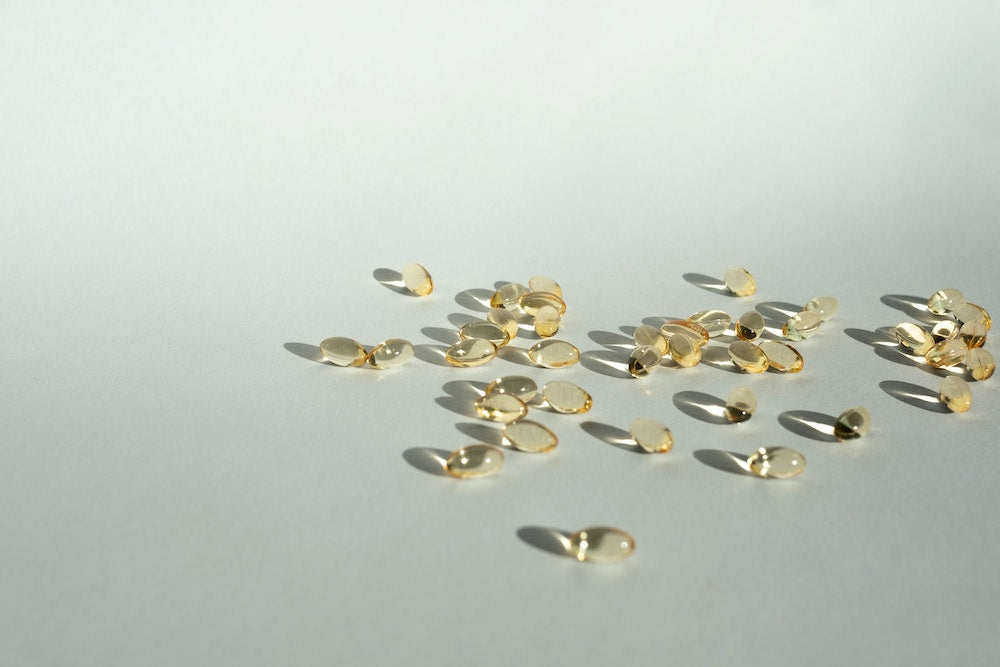When to Take Vitamin D3: The Best Time for Maximum Benefits

The mineral cholecalciferol, also called vitamin D3, promotes bone health, supports immune function, and controls how much calcium and phosphorus the body produces. Knowing the optimal time to take vitamin D3 can help maximize its benefits. In this piece, we'll discuss the advantages of consuming vitamin D3 at certain times of the day, sources of vitamin D3, and tips for getting enough sunlight to increase your intake.
Benefits of Vitamin D3
What is Vitamin D3?
Vitamin D3 is a fat-soluble vitamin that promotes appropriate phosphorus and calcium levels, resulting in strong bones. It is found naturally in foods such as fatty fish, egg yolks, fortified milk, and cereals. Sunlight also stimulates the production of vitamin D3 in the body.
Health Benefits of Vitamin D3
Vitamin D3 offers numerous health benefits (1), including:
- Strengthening bones by aiding calcium absorption
- Reducing inflammation, which can help with conditions like asthma
- Regulating immune system function
- Protecting against certain types of cancer (2)
- Enhancing cognitive performance
- Reducing the risk of type 2 diabetes
- Potentially guarding against depression by increasing serotonin production (3)
When to Take Vitamin D3
You are taking vitamin D3 with a meal or shortly after eating is best for optimal absorption. This ensures that your body can absorb the nutrients properly. The suggested daily dose of vitamin D3 for adults ranges from 600 to 800 IU, while pregnant women may require up to 4,000 IU (4). Talk to your physician or healthcare professional about the correct dose based on your needs.
Foods High in Vitamin D3
Dairy Products
Dairy products, such as milk and yogurt, are high in vitamin D3, and most firms provide fortified variations with even higher quantities.
Fish and Seafood
Fish and seafood like salmon, mackerel, tuna, oysters, and shrimp provide significant amounts of vitamin D3.
Plant-Based Sources
Plant-based sources include mushrooms (especially shiitake), fortified cereals, and orange juice. Fortified almond or soy milk can also be good alternatives for those avoiding dairy products.
Supplements for Increasing Your Intake of Vitamin D3
Several supplements are available in different forms, including tablets, capsules, liquid drops, gummies, sprays, and patches. A vitamin D3 supplement offers convenience and ensures consistent levels throughout the day.
Tips for Getting Enough Sunlight to Increase Your Intake of Vitamin D3
How Much Sunlight Do You Need?
To obtain adequate vitamin D3, adults should expose their face, arms, legs, or back to the sun without sunscreen for 15 minutes between 10 a.m. and 3 p.m. twice a week.
Safe Sun Exposure
Wear broad-spectrum sunscreen with an SPF of 30 or higher, as well as long sleeves and pants, particularly during peak hours (10 a.m. to 3 p.m.).
Alternative Sources
If sun exposure is not feasible, consider taking vitamin D3 supplements and consuming fortified foods like milk and orange juice.
Related Studies:
- A study conducted by the Multidisciplinary Digital Publishing Institute (MDPI) found that vitamin D supplementation at a dose of 800 IU/day in combination with sufficient calcium intake can have a beneficial effect on fracture prevention and improve bone mineral density in older adults.
- A research article that appeared in the journal Frontiers in Immunology demonstrated that vitamin D3 supplementation can enhance immunity by triggering the production of antimicrobial peptides and modulating the activity of immune cells.
- A study published in the Journal of the American College of Nutrition found that vitamin D3 supplementation can reduce markers of inflammation, such as C-reactive protein and interleukin-6, in individuals with cardiometabolic risk factors.
- According to a study published in the Journal of the American Geriatrics Society, higher serum vitamin D levels in older people are associated with improved cognitive performance, including memory and processing speed.
Conclusion
Taking vitamin D3 is essential for maintaining a healthy lifestyle. The best time to take vitamin D3 depends on the individual and their needs. It can be taken in supplement form, through foods high in vitamin D3, or by getting enough sunlight daily. Talk to a physician about making sure your supplementation routine is tailored to your needs and circumstances.
FAQs
Should you take d3 in the morning or night?
It is advisable to consume vitamin D3 supplements in the morning with a meal for optimal absorption and sustained levels of this vital nutrient.
When is the optimum time of day to take vitamin D3?
Taking vitamin D3 in the morning with breakfast is recommended for optimal absorption.
Why should you take vitamin d3 at night?
Taking a vitamin D3 supplement in the evening can help regulate calcium and phosphorus uptake, which is necessary for robust bones, and support the immune system.
How much vitamin D3 should I take daily?
The suggested daily dose of vitamin D3 for adults ranges from 600 to 800 IU, while pregnant women may require up to 4,000 IU. Consult your physician to determine the appropriate dose.
What are the health benefits of taking vitamin D3?
Vitamin D3 supports bone and muscle health, reduces inflammation, regulates immune system function, and potentially guards against depression.
